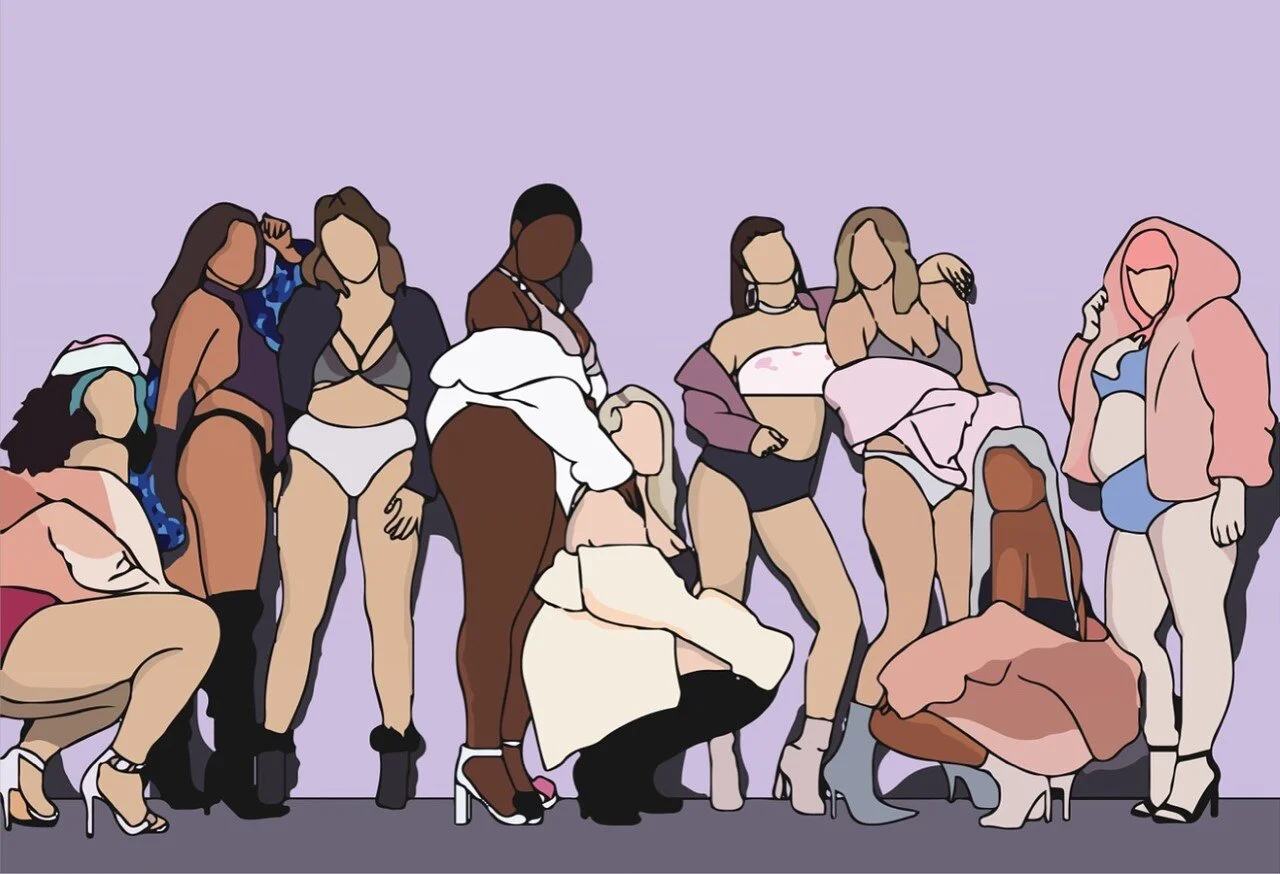Not Just 'Disordered Eating': How I Came to Terms with My Eating Disorder
by Renata Leo
I’m done tiptoeing around the term “eating disorder” when describing my feelings about food.
It wasn’t until recently that I even started to question the way that I think about food. Sure, I went through a time in my life where I only ate 500 calories and exercised 5 hours a day, but I’m not doing that anymore, so I’m cured, right?
It must be normal, I thought, to obsess about food. As long as I wasn’t still starving myself, all of my food-related feelings were probably the same as everyone else’s. But you never “just get over” having an eating disorder, however long ago it was.
I was in high school and I was tired of being chubby (which I equated to unattractive). At this point, I can honestly say that I was disgusted with myself. I couldn’t seem to lose weight just by exercising a bit every day and eating a normal amount of calories. So, the summer before my junior year of high school I decided that I needed to do something more dramatic.
I started eating as little as possible, and when I did eat, I ate dieting bars; high protein, low carbs. Idle hands made for snacking, so I stayed as active as possible for hours on end. I would exercise all day, every day, unless I had something else to do. This effort, coupled with my high school metabolism, caused me to lose 20 pounds in 2 weeks.
I was finally in the “healthy” weight bracket for my height, but to my surprise, that didn’t matter. I was still just as miserable with myself and my body as I had been when I was 20 pounds heavier. The only difference was that I hated the fact that I had starved myself to get there. I was ashamed that I allowed my self-hatred to go so far, only to realise that I wasn’t happy anyway.
After that summer, I knew that I was capable of starving myself and decided to do anything I could to avoid that mindset. The problem was that if I tried to pay attention to what I was eating even the tiniest bit, I would instantly start focusing on my weight and try to justify eating nothing at all.
If I can wait to eat for another hour or two, then I will probably only need two meals today, and if I can do that all week, I’ll drop like 5 pounds.
So I just...didn’t. I vowed to simply not overeat. I could have a pastry or an ice cream cone for a meal, just as long as I wasn’t overly full. While I was in college, this worked fine because I was exercising regularly as a campus Zumba instructor. Once I graduated and started working, I put on a few pounds, but I just kept reminding myself that nothing was worth getting close to starving myself again.
A few years ago, I went through a difficult break-up that sent me spiraling into a 2-year depressive episode. I had no energy to think about what I was eating and the effects that it had on my body. I was too focused on getting myself out of bed every day to use any of my mental energy on fixing the way that I ate.
Eventually, I tried taking care of myself mentally, making time to meditate and read as well as speaking more kindly to myself. But as the depressive episode waned, I realised that it was impossible to say I was truly caring for myself if I focused on my mental health and ignored my physical health.
Eating healthy couldn’t be that hard, could it?
But I managed to forget what happens when I pay attention to what I’m eating. I still get a thrill from missing meals, no matter how sick it makes me feel physically. When I try to eat better, I spend my entire day in an endless cycle:
Am I hungry now?
Damn, I hope I’m not hungry yet.
What can I eat? I want something unhealthy, but I need to eat healthy.
I can’t eat until I’m hungry. Am I hungry now?
Ugh, I’m going to eat like crap and be fat forever.
I am complete and utter human garbage.
Am I hungry now?
While some of you know this thought process intimately, I realised that it’s impossible for everyone to think this way all the time. It dawned on me that most people probably just eat when they’re hungry and don’t put much thought into it. And even if they do put thought into it, it isn’t this much compulsive thinking.
People without eating disorders don’t starve themselves. They aren’t proud of skipping meals, and they definitely don’t have such a destructive and constant internal monologue.
I have an eating disorder.
While I don’t struggle with it to the same degree that I did back when I was in high school, it’s takes daily work to keep the intrusive thoughts at bay. I can’t let this fact keep me from trying to be my best self, and I can’t treat myself like garbage because of it. My body might not be perfect by any means, but that doesn’t give me the right to abuse it.
I have an eating disorder, but I refuse to let it define me.
Title image by Bianca Fernandez.
If you’re struggling with your feelings about food, you don’t have to go through it alone! Try the Beat helpline and get the support you need.
Discover more from Renata Leo on Buffalo Sauce Everywhere. Renata also has a podcast called Overrated/Underrated, and can be found on Twitter and Instagram as @renataoleo.




